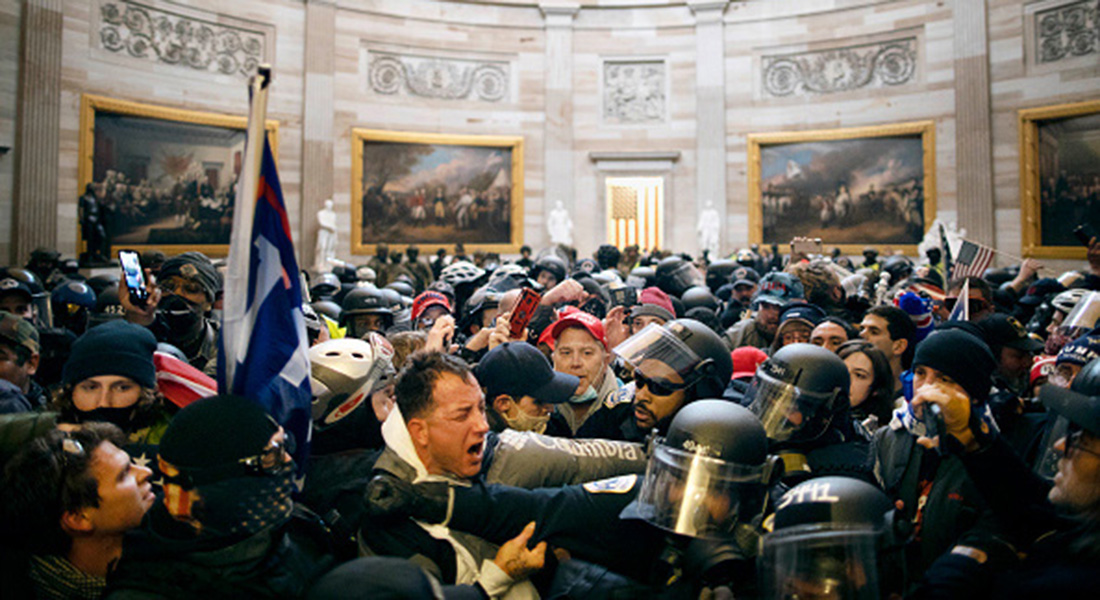The struggle for recognition: The liberal world order is eroded from both within and without
Replacing Donald Trump with Joe Biden does not take us back to the liberal international order that represented ideas and rules of democracy, equality, trade and economic prosperity. In fact, the threat to the liberal international order is increasingly coming from within.

This is the conclusion of Professor Rebecca Adler-Nissen, the University of Copenhagen, in a new research project, published in the prestigious journal International Organization.
Four years with the Trump administration have created major upheavals: The US has turned its back on the Paris Agreement, the WHO and the Iranian nuclear deal, and that is only part of the overall picture of an order that is cracking. Now that Biden has won the presidential election, it is the question whether the international order – as we know it from before Trump became president – can be saved, or whether the Trump years have conclusively destroyed it?
Shattered dreams of equality
The liberal international order that emerged in the wake of World War II created a hope for flourishing democracies with increasing social and economic equality, both within the countries and between Western and non-Western countries. A hope for progress. But instead of fulfilled dreams, today there is a sense of continued inequality and lack of recognition among leaders and population groups, inside and outside the West. The tendency is clear, e.g., in the US among Trump supporters. But new research shows that inaugurating Joe Biden as the new president will not take us back to the golden times. The article ‘Struggles for Recognition: The Liberal International Order and the Merger of its Discontents’ has just been published in the journal International Organization. Here, Professor Rebecca Adler-Nissen, the University of Copenhagen, and her colleague Ayşe Zarakol, the University of Cambridge, point out that similar currents have long prevailed in countries bordering the liberal international order, such as Russia and Turkey. And, now, the two currents meet and threaten the liberal international order.
Strong currents from all over the world are uniting
‘The movements we see in, e.g., the US, Britain, France and Italy, where parts of the middle class turn their backs on international institutions, are not just about economic inequality, scepticism about immigration or remoteness from the elite. Studies show that Trump and Brexit supporters are also motivated by the perception that the liberal world order has not given them their rightful place in the world’, says Rebecca Adler-Nissen. She stresses that these attitudes are resonating globally these days:
‘Anti-liberal groups at the core of the West and authoritarian and semi-authoritarian leaders in Russia, Turkey and Hungary have one thing in common, i.e., that they do not feel recognised as full-fledged members of the international order. That feeling has long prevailed in countries outside the Western core, but now it is also growing in the West and, combined, it creates an enormous force that undermines the international order as we know it’, says Rebecca Adler-Nissen.
She stresses that while dissatisfied groups in the West believe that the EU and the UN are undermining their historic place in the world, non-Western authoritarian leaders are challenging the liberal international order as a Western-centred hierarchy that must be replaced by a non-Western alternative. Nevertheless, the end result is the same, explains Rebecca Adler-Nissen: For both currents, the present order is an enemy in the struggle for the recognition and the status to which they feel entitled.
In the new study, she points out that opposition to the international world order is given extra impetus by two factors: On the one hand, the digital platforms that connect citizens and authoritarian politicians across the globe and give them a global mouthpiece like never before. On the other hand, the fact that the political ideologies that characterised the world during the Cold War have broken down and facilitated paradoxical, transnational connections between, e.g., far-left activists, right-wing extremists and anti-Western Islamists. Thus, the dissatisfaction with the liberal order is neither new nor created solely by Trump.
The myth of the golden age before Trump
‘It is a myth that there has been international consensus and a broad popular support for the American-led liberal international order. Non-Western countries have long felt left out in what they see as a Western-dominated status club. Now, it is clear that the challenges to the world order also come from within the Western countries themselves’, says Rebecca Adler-Nissen.
The inauguration of a new president in the US does not save the liberal international order. But Biden now has an important task ahead of him. He must, according to the new study, focus on understanding the vast, silent majority rather than listening to the loudest opponents of the liberal international order. It is not an easy task.
Read the scientific article
The article stems from the DIPLOFACE project, funded by the European Research Council (ERC).
Topics
Related News
Contact
Professor Rebecca Adler-Nissen
Department of Political Science
Telephone: +45 30 22 40 75
Mail: ran@ifs.ku.dk
Read the scientific article
Struggles for Recognition: The Liberal International Order and the Merger of its Discontents
Published in the prestigious journal International Organization
